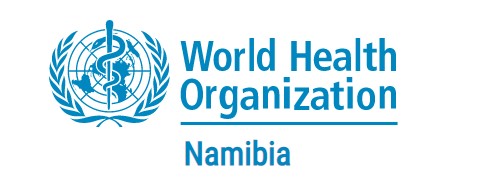Childhood is meant to be a time of joy, growth, and development, free from violence, abuse, and exploitation. This is however not the case for over 39.6% of Namibian girls and 45.0% of Namibian boys experiencing physical, sexual, or emotional violence in their childhood according to the 2019 Violence against Children and Youth Survey.
Addressing violence against children remains high the Namibian Government’s agenda. The Country is one of 38 countries to becoming a Pathfinding country committing to end violence against children. In addition to a robust policy and legislative framework on the protection of children against violence and abuse, a National Plan of Action 2022-2025 to prevent and respond to violence against children is in place. This multi-sectoral plan is aligned to the INSPIRE: Seven strategies for ending violence against children and sets out the government intend to make homes, schools, and communities safer for children.
In demonstration of its commitment to end violence against children, the Ministry of Gender, Poverty Eradication and Social Welfare (MGPESW) in partnership with the Ministry of Health and Social Services (MOHSS) with support from WHO, hosted an inaugural training of trainers on recognizing and responding to violence against children and the management of child maltreatment.
The training for health workers and social work professionals was delivered over three days, from 28-30 November 2023. and the workshop covered a comprehensive agenda to equip participants with the knowledge and skills needed to provide first-line support to child survivors of violence. The agenda was structured to progressively build expertise, ensuring participants are well-equipped to address violence against children in their professional roles.
Speaking on behalf of the WHO Officer-in-Charge, Dr Sirak Hailu, said that Namibia is among the countries operationalizing the recommendations of the latest World Health Assembly Resolutions emphasizing the need to end violence against children through health systems strengthening and multisectoral approaches. He commented the government on its National Plan of Action (2021-2025) aimed to develop a comprehensive and integrated response system to deliver coordinated, quality, and timely support to children affected by violence and reiterated that the training will contribute to achieving this goal.
Speaking at the same occasion was the Director of Gender Equality and Child Welfare, Mrs. Helena Andjamba, representing the Executive Director of MGPESW. She re-emphasized Namibia’s commitment to end violence against children and said that Namibia ratified the United Nations Convention on the Rights of the Child as well as the African Charter on the rights and welfare of the child. She said that her Ministry is entrusted with the promotion of the children’s rights in the country and that they can’t do it alone as those rights are to be protected by various stakeholders including the ones represented at the training workshop. She further referred to the Child Care and Protection Act which provides for the protection of all children with the expectation of children who in conflict with the law. She mentioned that the country has a separate draft bill for children in conflict with the law. The Act is supported by the National Agenda for Children as well as the National Plan of Action to prevent and respond to violence against children stipulating the roles and responsibilities of the relevant stakeholders. She acknowledged the support they received from UNICEF, US Government and Global Fund to realize the government objective on the wellbeing of children, and she also welcomed WHO for their additional support towards the same goal.
The training was attended by 37 participants. These included 14 Medical Doctors, Nurses and Social Workers from the Ministry of Health and Social Services (MOHSS), 15 Social Workers, Senior Social Workers and Chief Social Workers from the Ministry of Gender Equality, Poverty Eradication and Social Welfare (MGEPESW), 6 participants from NGOs (SOS, Lifeline, Project Hope), and two participants from the Namibian Police.
WHO is committed to supporting the government with the strengthening of systems including the health system to provide comprehensive child protection services.
Distributed by APO Group on behalf of World Health Organization (WHO) – Namibia.
